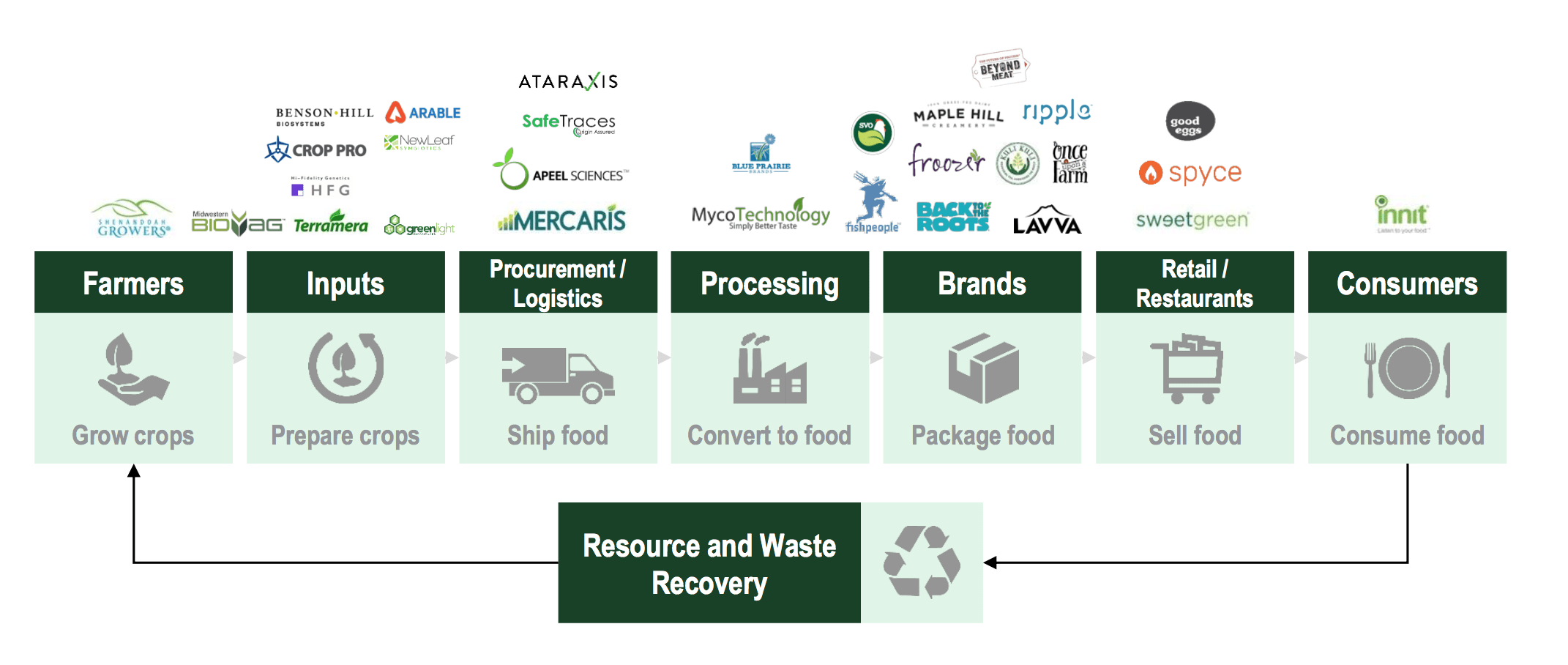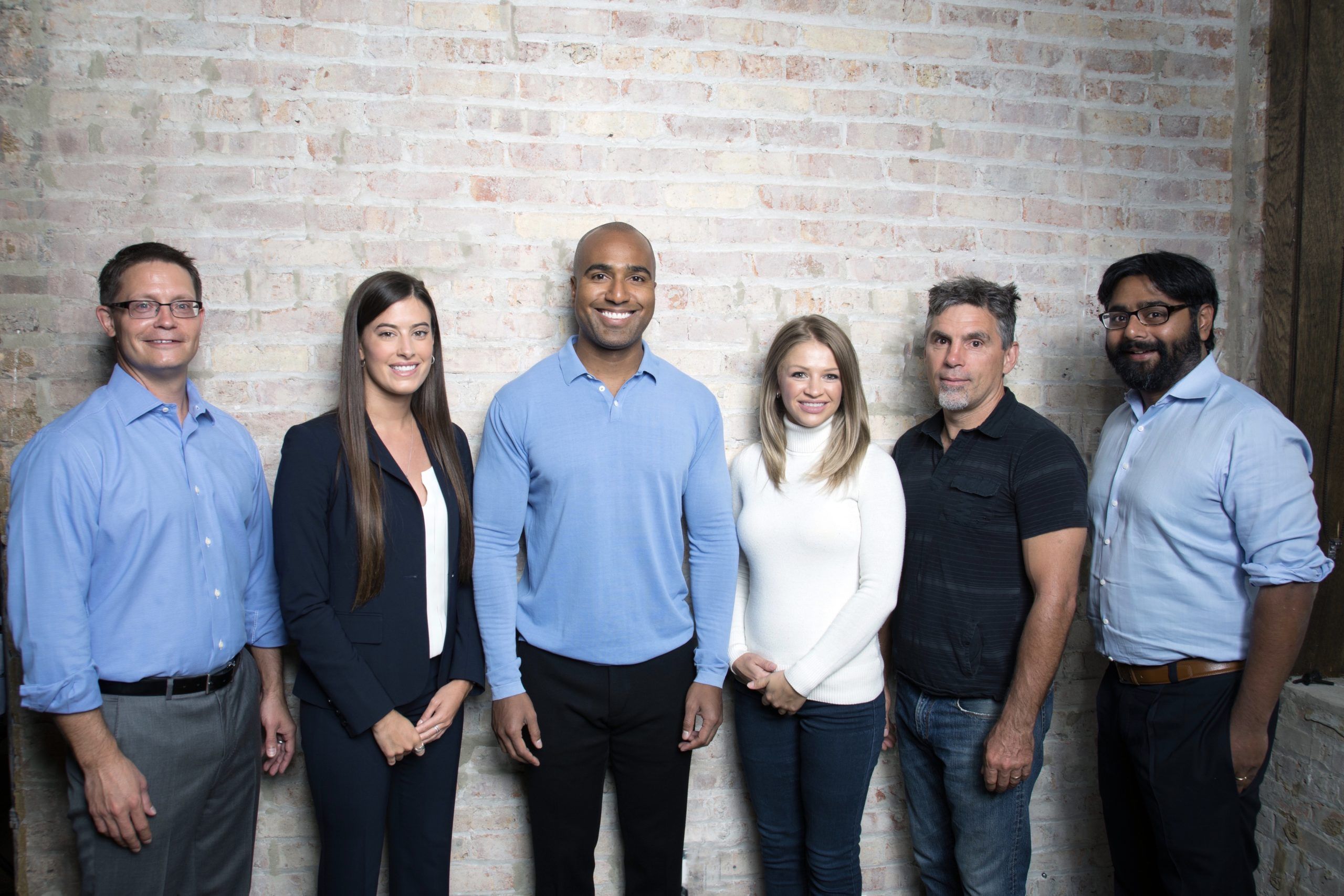“It’s amazing that food and agriculture is probably the largest industry in the world but that the amount of capital, innovation, and entrepreneurship is relatively small compared to what we see in other industries; that was my first takeaway on entering this space,” says Aaron Rudberg, the recent high profile hire by S2G Ventures, the agrifood tech venture capital firm.
S2G recently closed its second fund on $180 million and is the most active dedicated agrifood tech venture capital firm today with 30 investments under its belt.
Rudberg is S2G’s chief operating officer and joined the Chicago-based firm from the $3.3 billion private equity and venture capital business Baird Capital where he spent nearly 10 years as a partner overseeing global strategy, investor relations, marketing and business development. The agrifood industry is fairly new to Rudberg who says his experience is mostly in technology and software.
Rudberg’s role will focus on building out the firm’s infrastructure so it can continue to scale. This will involve introducing best practices on how to manage funds, providing more structured support to portfolio companies, particularly in hiring talent, structuring their sales processes, and interacting with industry corporates.
“While this sector has not been a focus before, I’m familiar with the business model, characteristics, and best practices that bring both successes and failures, so I hope to bring that experience to bear at S2G,” he says.
AgriFood Tech VCs Behind Operationally
Operationally, Rudberg believes the agrifood tech venture industry has some catching up to do with other startup industries such as healthcare and software.
“I have seen few, if any, [agrifood tech investment] firms that have extensive resources to help portfolio companies on the operating side,” he says. “Looking at our 30 portfolio companies, they are all going through growing pains and often have more opportunity than resources, so that’s an opportunity for us to offer them more support around sales or human capital, performance assessment, and corporate relationships to help accelerate their growth.”
By building this “operational toolkit,” Rudberg hopes S2G will differentiate itself from others, and become a better partner for startups.
“We want to be more than just capital,” he says. “We will provide capital to get into the game, then offer advice and counsel based on pattern recognition and experience.”
S2G will focus on building out support for its portfolio companies in three core areas: sales, human capital, and corporate development.
Key Support: Sales, Human Capital, Corporates
In sales, Rudberg says the firm aims to help companies leverage online channels, digital content, and data to build a sales process that’s repeatable.
For human capital, it’s about building the right culture internally to find the right talent. This is likely to involve S2G making direct recommendations for hires based on the build-out of its own CRM system of top executives. Rudberg references Baird, which had two people working full time to support its portfolio companies in hiring talent.
For corporate development, Rudberg wants S2G to continue to build relationships with strategic industry players; he says half of the firm’s 80 co-investors are strategics.
“All startups are looking for relationships with large corporates; the more we can be engrained in those relationships and bring startups insights from top strategics, the more we can provide better insight on tactics and strategy, as we well as potential exit opportunities,” he says.
Building Virtual Vertical Integration in the Portfolio
S2G invests in startups from farm-to-fork with the aim of assembling a “virtual” vertically-integrated portfolio of agrifood tech companies, Sanjeev Krishnan, managing partner of the firm, tells AgFunderNews.
The firm’s first $125 million fund invested in companies spanning farmer-focused tools, inputs, procurement and logistics, processing, brands, retail and restaurants, and consumers.

The firm aims to use this virtual vertical integration to create connections across the supply chain and link consumer trends to decisions made on the farm. Clusters of portfolio companies around certain issues can then form, presenting opportunities for the companies to work together, thereby creating efficiencies in the supply chain.
For example, two portfolio companies — MycoTechnology and Blue Prairie Foods — are working on ingredients (or “inputs”) that reduce sugar use in food products, while another five are producing low-sugar foods — Back to the Roots, Maple Hill Creamery, Froozer, Ripple, and Once Upon a Farm.
“One portfolio company’s issue can be a purchase order for another,” says Krishnan.
The other food system issues these startups are working on include climate change, human health, sugar consumption, food waste, the democratization of organic food, farmer profitability, food access, the future of proteins, nutrition, traceability, water, transparency, and soil health.
What’s Next for Fund II?
Fund II will largely follow a similar strategy to Fund I, investing across the food ecosystem, but may make larger investments, says Krishnan adding that it will invest between $250k and $25 million per company, syndicating larger investments too.
Finding other investors for agrifood tech deals is not without its challenges, however.
“While the US food system is a $1.2 trillion industry, there is not enough dedicated risk capital available to support entrepreneurs during their critical growth stage,” says Krishnan. “We spend significant time syndicating our investments and ensuring that our entrepreneurs work with trusted financial and strategic partners.”
Fund II also attracted commitments from a similar subset of investors — predominantly family offices, some of which are associated with the food industry.
The team will be hiring at least three new members of staff in the near future.





